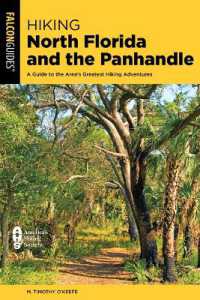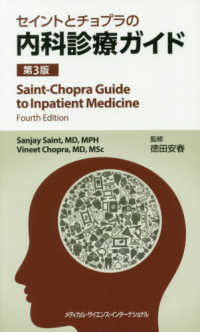- ホーム
- > 洋書
- > 英文書
- > Literary Criticism
Full Description
Decoloniality has emerged as one of the most prominent subjects of public and academic debates of our time, bringing to the fore the post-colonial perspectives of previously underrepresented groups. Interest is similarly growing around the countries of the Caucasus and Central Asia, which have been part of the Russian and Soviet empires, and are now defining their independent, post-Soviet, and decolonial identities. Following the dissolution of the Soviet Union, literature has become a key platform for exploring what it means to be post-Soviet, and the extent to which post-Soviet identity is a post-colonial one.
It is at this point that this monograph intervenes as the first major study to examine post-Soviet literature from the Caucasus and Central Asia and to employ postcolonial theory as its methodology. Authors from Georgia, Armenia, Azerbaijan, Kazakhstan, Kyrgyzstan, Tajikistan, and Uzbekistan are placed in dialogue with each other to establish how they respond to the post-Soviet transition and negotiate their postcolonial identities in their fiction. These include Narine Abgaryan, Hamid Ismailov, Nana Ekvtimishvili, Mariam Petrosyan, Bibish, Lilya Kalaus, the SHTAB collective, and others. Building and expanding on the theoretical tools of postcolonial and decolonial studies, the enquiry covers four core topics: trauma, immigration, NGOs, and utopias.
The author argues that post-colonial theory is crucial for understanding the current cultural developments in the Caucasus and Central Asia, whose literatures are in many respects postcolonial on the level of the writers' identity configurations and modes of representation.






